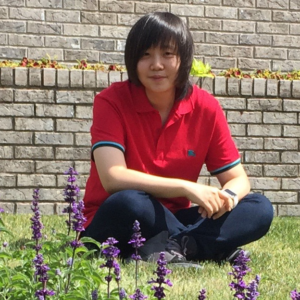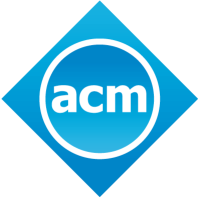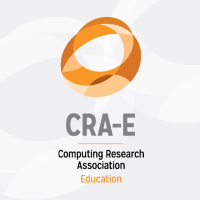Profiles in Computing: Volcano Kyungyoon Kim
By Shar Steed, CRA Communications Specialist

For Volcano Kyungyoon Kim, current Ph.D. student and 2016 Graduate Cohort Workshop (Grad Cohort) attendee, choosing to study computer science was an easy decision. She knew since elementary school that she would have a career in computing. Volcano comes from a computer science family – her father is a computer science professor, her mother also has a degree in computer science, and now her younger brother is currently pursuing a master’s degree in computer science. “Every single one of us is in computer science. So I never really thought of anything else. My parents think that it’s the most exciting and valuable field of study, and it will lead to a great career in the future.”
While this influenced her enough to begin studying computer science in college, during her first two years she wasn’t totally convinced that it was a perfect fit for her. It wasn’t until Volcano discovered the flexibility of the field and its interdisciplinary nature that she was completely hooked. “There was a moment later on when I thought this is really perfect for me. It is not only about computer science, it is about applying it to all the other areas. If you have an interest in art, having a computer science background can boost your art skills or it can even open up a new art genre such as 3D painting in a virtual reality. Computer science is like a magic powder that you can add to other fields. ”
After getting her undergraduate degree at University of Massachusetts – Amherst, Volcano entered the Master’s program at the University of Minnesota not knowing what she wanted to focus on. She received an email from the university looking for participants for a computer science experiment and decided to volunteer. The experiment involved a multi-touch table with 3D virtual reality visualization. During the experiment, she wore 3D glasses and saw objects floating in front of her. “That was my first ever experience seeing something in 3D. This was something totally different from what I had seen in movies in the past. This was something very realistic, because it was actually set to my perspective and seemed very close,” she explained.
She was amazed by the technology and wanted to be a part of its development. “At that point, I thought, ‘I want to join this lab. I want to do research in this area.’” Now she is a research assistant at the Interactive Visualization lab (IV/LAB), directed by her advisor Daniel Keefe.
While she is sure there are challenges to being a woman in computing, she mostly thinks of the benefits that keep her engaged in the field. “When I tell my lab mates that I’m heading to Grad Cohort or Grace Hopper, they are jealous of where I’m going.” She appreciates the graduate school focus of Grad Cohort, because while her parents always encouraged her to become a professor, sessions at Grad Cohort increased her awareness of other career options in industry, government and even non-profit organizations. She also was excited to learn that even in academia there are differences at teaching-oriented institutions and research-focused universities.
Volcano shared that attending Grad Cohort helped her bond with fellow graduate students in computing. She appreciated being paired with a roommate so that from the first day she was drawn into the conference. Volcano attributes the sessions with giving her a real picture of what life in a computing career is like and she is amazed by the options and opportunities available. “All the vague things about life after graduate school became clear, and I thought I can really see it [her future].”
Part of the mission of the Computing Research Association (CRA) is to mentor and cultivate the talent development of computing researchers at all levels. Several programs led by the Committee on the Status of Women in Computing Research (CRA-W) focus on increasing gender diversity in computing. This column, “Profiles in Computing,” showcases successful individuals in computing, who donate their time and energy to mentoring future generations and strengthening the community of computing researchers through CRA-W initiatives.



